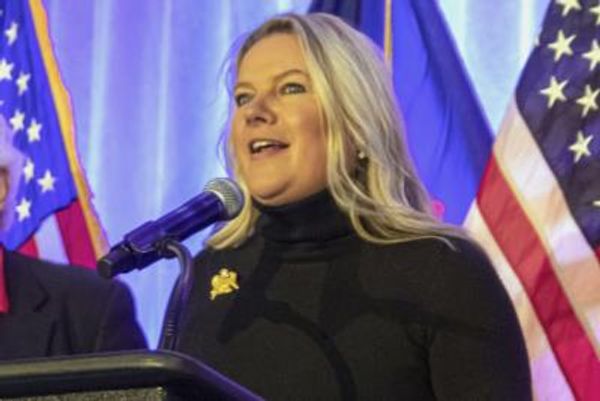Working off Australia's remote northern coastline, Charles Darwin University (CDU) marine scientist Carol Palmer has got to know false killer whales as one of the country's most charismatic dolphins.
"False killer whales are most fantastic because they actually come over to the boat to say 'hello', and they check you out," she said.
Now, working with Indigenous ranger groups from the Northern Territory's Cobourg Peninsula to the Kimberley, she has gathered enough DNA samples to prove that Northern Australia's false killer whales are a distinct endemic species not found anywhere else.
Dr Palmer said she had made the discovery by collecting small skin samples from the animals, in a process they barely notice.
"To use a pole or a crossbow to get just a small skin sample, it's really really easy, because they're coming over to us," she said.
And she said the new findings could have an impact on their protection.
"We now know we have a unique coastal population of false killer whales, and that means we are now at the point where we can actually try to update their conservation status.
"In Hawaii, where they've studied false killer whales for 20 years, they've got two populations of 250 and 500 animals, and I think we will find that is the case here for ours.
"Under American legislation they're classified as endangered."
Globally, the large black and grey dolphins are classified as near-threatened.
However, they do not have an Australian conservation status because of the insufficient information available up until now.
"We will be able to reclassify the false killer whales, and this is the first time," Dr Palmer said.
"Apart from the US, we are the only other country that has identified this now."
'The worst plastics pollution I've seen'
Dr Palmer said she hoped her research would encourage the federal, state and territory governments to better protect the animals' habitats from the many threats that faced them.
"We're seeing a lot of scars that could be coming from a range of fishing and boats," she said.
"And any major underwater drilling and gas development in our oceans here, it's a real worry."
Her team has been particularly dismayed by the amount of marine rubbish they have encountered during their research, much of it from Asia.
"In the remote locations, particularly the Wessel Islands, I think it has the most plastics and ghost net pollution I have ever seen," she said.
"It is really expensive to manage that, and none of it's been managed yet.
"The other side of it is the microplastics into the fish and then into our marine megafauna.
"Along with climate change, with sea level rise and sea temperature rise, that's something we need to get onto straight away."
Federal government promises more protection
The Australian Marine Conservation Society's NT campaigner Adele Pedder is calling on the federal government to respond to the research by toughening ocean protection off Northern Australia.
"We're seeing decline in species and we really need to put in place the tools that we know look after these animals, such as marine protected areas, Indigenous protected areas and marine parks," she said.
The Federal environment department said in a statement that the Australian government had already covered 45 per cent Australian waters with marine parks and protected areas.
It also said where gas developments were allowed in marine reserves, the government's offshore gas regulator ensured impacts to wildlife were "acceptable".
The environment department said the government was spending $15 million on removing abandoned fishing nets and rubbish, and was trying to negotiate an international agreement on ending plastic pollution.
Sea Country song to raise awareness
Dr Palmers' research will be published in the Frontiers scientific journal.
But after producing years of reports like this, she fears that governments are not paying enough attention.
"People are talking about action by 2050 — well that isn't soon enough, because the planet is in a lot of trouble now," she said.
"We've actually got to move really quickly, and there's a lot that we can do, but it's very tough."
Along with friends, she has recorded a song featuring the calls of false killer whales called Sea Country, with a message about the need to protect the species and other marine animals.
They have performed it in local pubs, and now they plan to release it online to try and bring the voices of the ocean to policy makers and the people.
"We're hoping music will help to get the story out there that we have these dolphins, turtles and whales in our northern waters, because it's the public that will shift [things]," she said.







